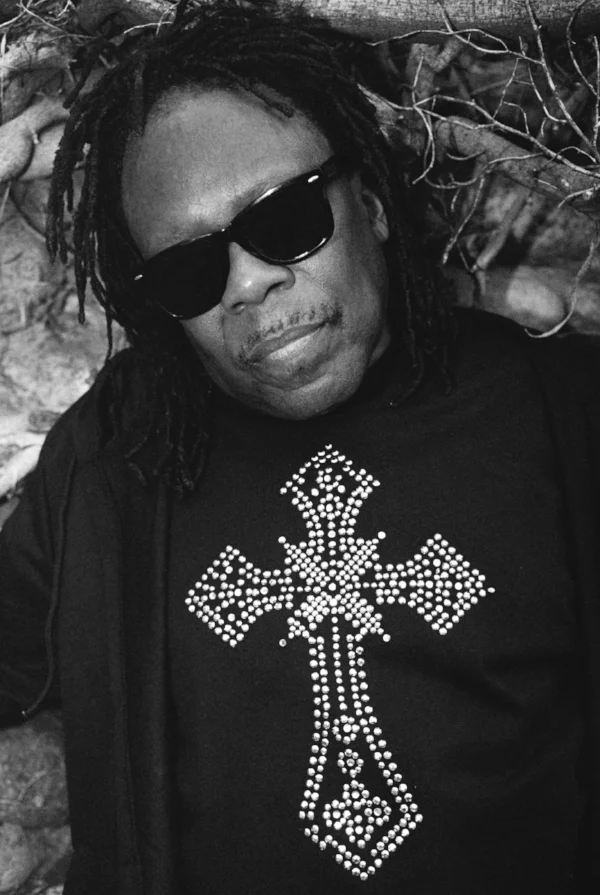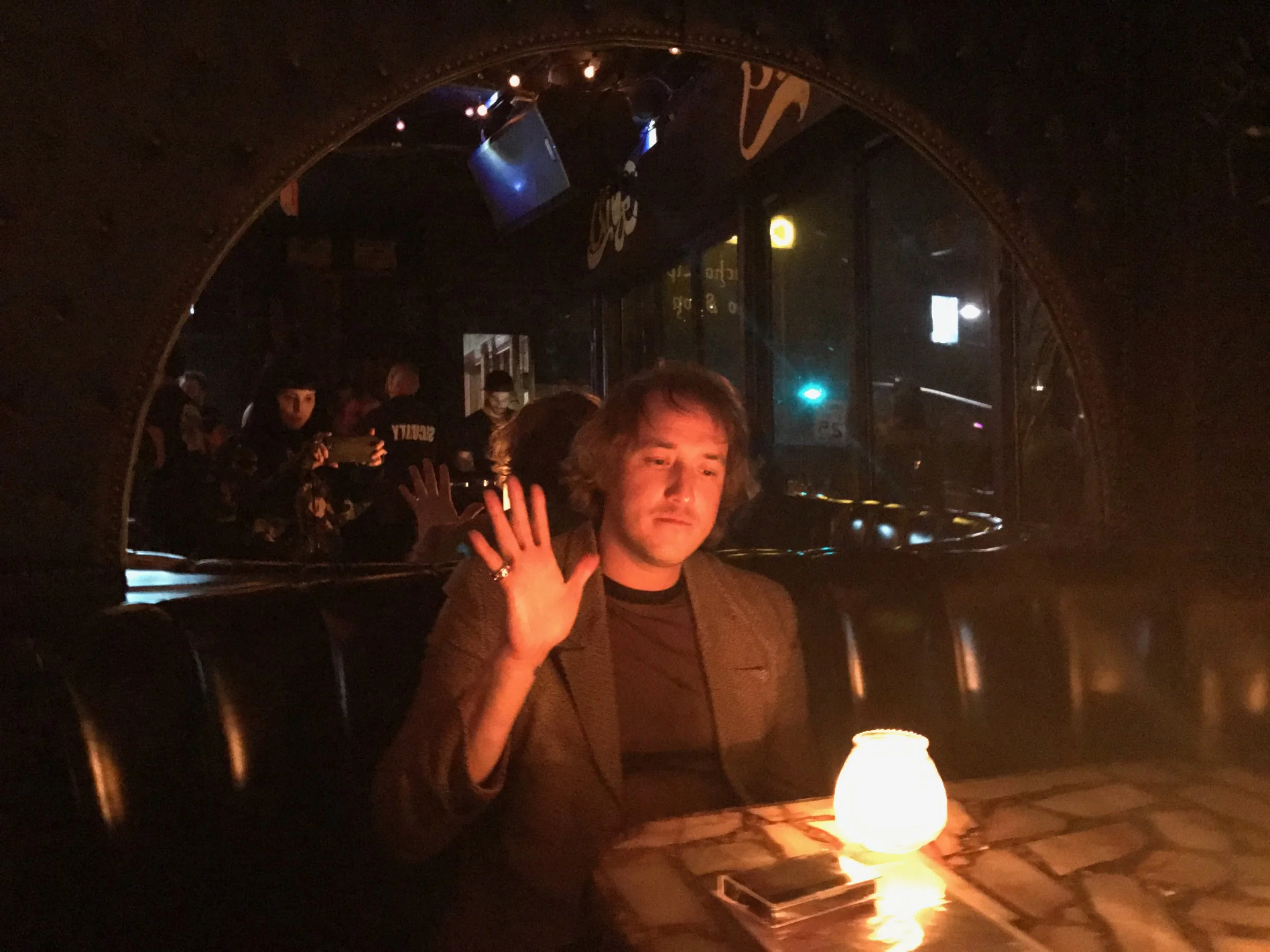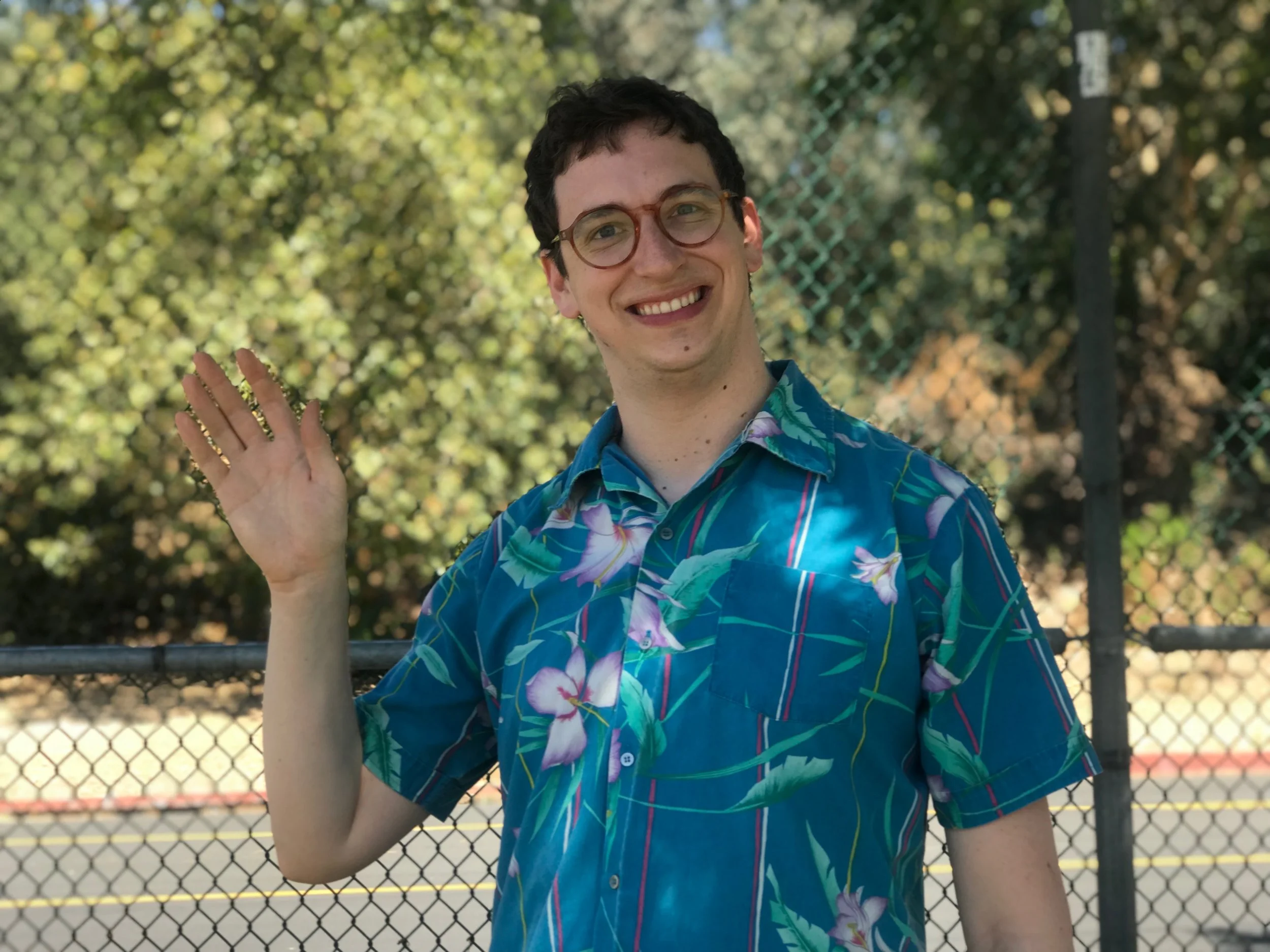Prophet Discusses New Album Wanna Be Your Man, Collaborating with Mndsgn and Nite Jewel, and His Underground Classic Right on Time
Until recently, Bay Area artist Prophet has only been familiar to a niche - though fervent - group of rare record collectors and music enthusiasts with the wherewithal and passion required to find music well off the beaten path. Prophet’s select audience, however, is likely to grow exponentially in the coming months with the release of Wanna Be Your Man on Stones Throw Records.
Stones Throw founder Peanut Butter Wolf has called Prophet's 1984 self-released boogie album "one of my Holy Grails," and with good reason – the debut (and hitherto only) release by Prophet is a fascinating and rare document of DIY funk. The album is characteristic of a time, place, and genre, and yet remarkably and simultaneously unique in its unconventional delivery. Curious about the background to not only his underground classic album, but also the upcoming Wanna Be Your Man, we were delighted to speak one-on-one with Prophet about past work, collaborating with Nite Jewel and Mndsgn, upcoming plans, and more.
Bobby Weirdo: I’ve heard your music called DIY boogie, lo-fi, funk, soul… is there a term that you would use to describe it? I know that’s near-impossible…
Prophet: I know, man. It’s just modern funk to me. I’ll try to come up with a term, but modern funk is the only way I can describe it. It’s different, avant-garde, and modern.
BW: Did you, Peanut Butter Wolf, and Nite Jewel recently perform together?
P: Yeah – we played a house party for some media people on Saturday, and it went very well.
BW: And that was in L.A.?
P: Yeah – that was here in L.A.
BW: I’ve seen references to you being from the Bay Area. Are you from San Francisco or Oakland?
P: Definitely San Fran. San Francisco is where everything started for me.
BW: When your album Right on Time came out in 1984, what was the San Francisco music scene like? Were you a part of a live scene, playing shows?
P: When I did the record, I was playing in a cover band. I think it was a lot harder at that time to get your music played and heard than it is now. Back in those days, we were doing vinyl, and vinyl was kind of expensive. A lot of musicians and artists couldn’t afford the production fee for that.
So I was in the cover band, and we’d [also] play some originals. We played songs that are from Right on Time. We hadn’t actually done the record, but we were playing the record [live]. Then I decided to do the album, and everything kind of fell apart with the cover band. I went on my separate way, and did the album on my own.
But the scene was pretty cool. We were playing clubs on Union Street, we did some shows in Oakland, Holiday Inn, and stuff like that in the 80s.
BW: What kind of covers were you doing? Was it close to your own material, or was it different?
P: It was different. We were doing Lionel Richie, Commodores, Kool & the Gang, Depeche Mode, Michael Jackson, Prince, some J. Geils Band…we used to do some Men at Work kind of stuff. At that time we had to cross over, playing R ‘n B and rock stuff that was kind of similar. We would play what the club owners would want us to play. They’d let us know the kind of stuff they’d be interested in having us perform, and we’d work on it to prepare for each particular event. It was a lot of different stuff.
BW: When you went solo to record your album, was it at home, or in a studio?
P: The final product was done in an actual recording studio, but I did all the pre-production stuff at home on a 4-track cassette player. I did some pre-production stuff in Europe, also. When I started working on the record, the guys [in the band] weren’t on the same page as me. We stayed together, went to Europe and Japan, and when I got back around ’83, that’s when I started putting the record together. I had all the songs, but I needed to record them. So I took it to a [studio with a] 24-track tape machine.
BW: What was the issue between the band and you that led to you going solo?
P: They still wanted to do cover tunes, and I had grown out of doing that, so I just checked out.
BW: Did any of your pre-production tracks make it to the finished album, or was everything re-tracked in the studio for the album?
P: Everything was re-tracked. We used a drum machine, I played live bass, live guitar, sang all the vocals, and played all the keyboard parts.
BW: Did you press the album yourself? And how did you get the album out to people once it was recorded and pressed?
P: I recorded it on my own label, called Treasure Records. I got the money together with my wife and recorded, mixed, and mastered it in Cupertino, California at a place called Tim Rudolph Studios. I got the master and sent it to Rainbo Records here in L.A., and they pressed up 1,000 or 1,500 copies. When I got them back, I walked them into distributors and had them on consignment in Bay Area stores.
BW: And now you’ve got a new album coming out called Wanna Be Your Man, thirty-four years after Right on Time. I’m sure you’ve grown and evolved as a person and musician during that time as you’ve persevered with the music, but you’re also really loyal to your original sound even with this new music. How did you capture that old-school sound and spirit in 2018?
P: I think it was a matter of staying focused, believing in myself, and knowing who I am. I never stopped recording; I basically recorded all the time. There was a period between ’84 and ’89 when I wasn’t recording because I was trying to market the record, but from ’90 to the present, I’ve been recording music all the time. When I started the Prophet brand, it was actually a part of me, so nothing’s changed musically for me. Everything has stayed the same as far as my intensity, my focus, and my ability to deliver music and sound.
BW: Was the process different this time around on the new album, since you were working with a producer? What type of role did Mndsgn play in the studio?
P: All the lyric content is mine, and some tracks like “Ooo Wee Yeah” are like what I recorded at home. What Mndsgn did was take vocals from some of my recordings for songs like “I Do”, which had a separate musical side to it that was totally different [than the album version]. So what Mndsgn did was take the vocal portion of what I did, and add a new sound to it.
But as far as producers go, artists are able to be who they are, and nothing really changes. You can take whatever sounds you’re dealing with, and make it a part of you. It’s all about the artists bringing themselves out in whatever sound they’re involved with at the time.
BW: Are tracks like “Really Turn Me On” and “Right on Time” from the Right on Time album also going to be on Wanna Be Your Man?
P: They are. “Right on Time” “Really Turn Me On”, and “Tonight” are all from the ’84 record. The three of them are also on the new record.
BW: But they’re re-tracked, right?
P: Yeah, they were re-tracked. I played on [the new] “You Really Turn Me On” and “Right on Time”. The “Tonight” track was done by Cole MGN and Nite Jewel, with my vocals on it.
BW: What was that process like – working with Cole and Nite Jewel? Did you talk about how that would be interpreted, or did you leave them to their own devices?
P: They had already recorded it, and put it on their website. So it was already basically done. And I liked it so much, that we were able to get the music tracks from Cole and Nite Jewel, and I put my vocals on there. Their version just had her vocals, so I recorded my lead on there as well. But the version that they did was a very, very funky version – that’s why I felt good about putting in on the record.
BW: Are there going to be any releases of the material you wrote and recorded in-between Right on Time and Wanna Be Your Man?
P: Hopefully. I have tons of music. I’ve been recording every day, and I have stuff that I know will make a good second record. So once we get through Wanna Be Your Man, hopefully we can do a new record [as well].
BW: Dâm-Funk shows up briefly in your new video for “Insanity”, but he’s not on the record, right?
P: Right – he and Mndsgn are in the video, but they’re not on the record.
BW: And is Taylor Gordon on the album, or also only in the video?
P: She’s in the video, but not playing drums on the record. Actually, I want to incorporate her into the band if I can get her to settle down for a second. She’s always on the go; I think she’s on the road right now with Fifth Harmony. And the keyboardist in the video, Anthony Raglin, is also somebody I can hopefully incorporate into the band.
BW: So there are going to be live dates coming up?
P: There’ll be live dates with a DJ right now, until we get commitments from some musicians interested in getting on board.
BW: Have you ever met Folerio?
P: I think I may have at a Stones Throw party.
BW: Is there anything you’re listening to in particular these days, or have you always had similar listening habits?
P: I’ll tell you the truth - I used to listen to a lot of people, but I don’t listen to anybody now. I know who artists are and what they’re doing. I may see them briefly in a television setting or hear a part of a song, but I don’t listen to anyone at the present time. I’m just too busy focusing on what I do.
BW: So Wanna Be Your Man is coming out soon, and there will be live shows…what else is coming up for Prophet in 2018 and 2019?
P: We’re going to do a video for “Tonight”, and we’re preparing that with Nite Jewel. And there’s a tour being worked on, so it looks to be pretty busy.
Wanna Be Your Man is out May 11, 2018







